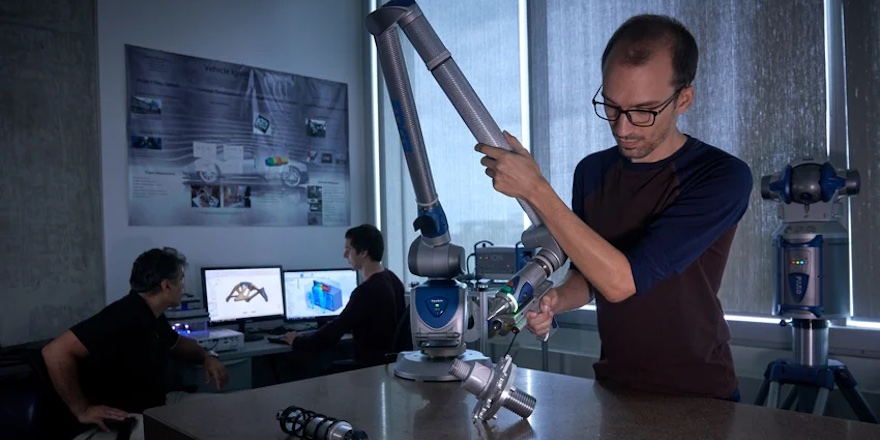Hands-On Learning Experiences at Ontario Tech
Discover your options to enhance your degree with experiential learning opportunities at Ontario Tech.

This article was written by Bria, an Ontario Tech University student.
Hi everyone! My name's Bria, and I'm going to tell you about the experiential learning opportunities at Ontario Tech University. During my degree, I had my fair share of hands-on opportunities that enriched my learning experiences and helped me get into grad school!
Keep reading to see what your hands-on learning could look like:
Types of experiential learning
The first thing you'll notice is that there are a handful of different options when it comes to hands-on learning. If this leaves you uncertain about which is the best fit for you, don't worry! I'll give you an overview of what each of these experiences consists of and how they are different to help you decide.
Co-ops & internships
Co-ops and internships are often used interchangeably, and for the most part, that is fine. However, during your studies at Ontario Tech, there are a few ways in which they differ.
For example, co-ops and internships are available in Business programs, Engineering programs, and Science programs; however, only internships are available for Health Sciences programs.
Similarly, if you're interested in Co-op, direct entry program options are available, but the same is not true for internships. However, whether you do a Co-op or an Internship, you'll gain real-world experiences within your field. You can complete four to 16-month placements with one of our (300+) industry partners, most of which are paid positions!
But what do they consist of? These hands-on learning opportunities are community placements, where you apply your classroom concepts to real-world situations. You work creatively and collaboratively with experts in the field, all while expanding your skills and padding your resume. Many of these positions are paid, so you can earn money while learning, and if you successfully complete enough terms, you can get a designation on your degree.
Independent study vs. honours thesis
While an Independent Study and Thesis may sound the same, there are considerable differences. But the good thing is you don't have to choose between them; you can always do both! During your Independent Study (also known as a Research Study), you get to work closely with a faculty member on a research project.
While each study is for a single term, you can repeat the course to keep working on the project if needed. Your research can be on something your professor has already started or an entirely new project. In my directed lab, I built Implicit Association Tests, administered surveys to students, and coded student responses.
An Honours Thesis is a little different — while it too may be an existing or new project you work on alongside a professor — it's a year-long project where you mainly lead yourself. You're responsible for conducting a literature review, collecting and processing data, and writing your results. You will submit a final manuscript and present your project as a poster to your peers.
Of course, your supervisor will be there to encourage and support you throughout the journey! But an Honours Thesis is designed to give you an idea of what academic research is like, so you can decide if it is the right fit for you. My thesis explored various impacts on the development of brain networks in children, which was an incredible experience that helped prepare me for my graduate studies.
Capstone project vs. practicum placement
A Capstone Project involves studying a business/organization and working collaboratively with the employees to analyze and evaluate their model comprehensively. You will develop recommendations for improving performance and address any specific problem(s) they may have. A Capstone encourages you to think critically while keeping solutions and innovation in mind. As a bonus, many companies hire students who have completed Capstone Projects.
A Practicum, on the other hand, is a semester-long placement where you complete 100 hours of work with a community partner. Practicums allow you to gain relevant work experience and explore the real-life meaning of your degree. Completing a placement will expand your professional network, career opportunities and transferable skills to support your career goals.
No matter your interests, all our programs have built-in experiential learning opportunities. This ensures you have a well-rounded education with relevant skills to help you succeed after graduating. Hands-on learning is a foundational pillar at Ontario Tech; that way, when you graduate, you can confidently enter the workforce.
Learn more about Ontario Tech